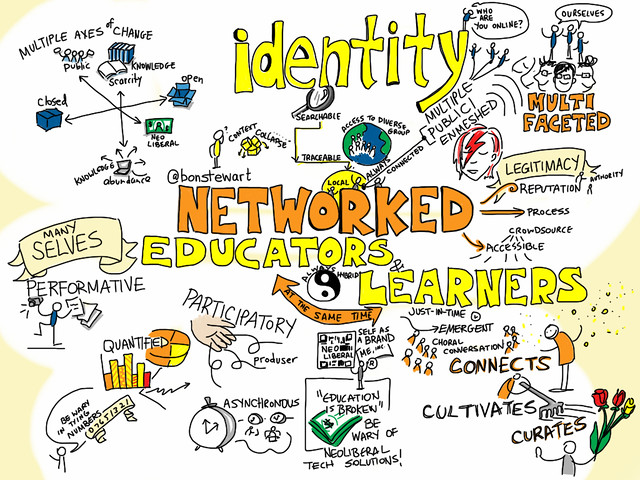
Ungrading is more than just the latest trend in higher education. Moving from alternative assessment to mainstream practices, these approaches offer practical solutions to many of the challenges posed by traditional grading.
Ungrading is an umbrella term for a variety of learning focused evaluation strategies that share an ideology: to reduce the pressure of grades while increasing students’ sense of agency in their learning. Ungrading strategies can be implemented in classes of all sizes and disciplines and have many variations (ie., self-assessment, peer assessment, formative assessments etc.) that can be customized to suit the size and level of the course.
Ungrading 101: Teaching Commons' "Food for Thought" Primer
Jesse Stommel: Introduction to Ungrading & Jesse Stommel: Ungrading FAQ
David Clarke and Robert Talbert: Ungrading for Growth
Crowdsourcing Ungrading: Pressbooks
Kohn, Alfie (2011) The Case Against Grades. Educational Leadership.
Books
Blum, Susan. D. (Ed.). (2020). Ungrading: Why rating students undermines learning (and what to do instead). West Virginia University Press.
Stommel, Jesse (2023) Undoing the Grade: Why we Grade, and How to Stop. Pressbooks.
Media
Macleans: Its time for Canadian universities to go gradeless
NPR: To help new students adapt, some colleges are eliminating grades
CBC: With "ungrading" these students aren't getting marks on their assignments, and they're loving it
College Covered: What it's like going to a college that doesn't give traditional grades
Inside Higher Ed: Why ungrading creates equity among students
Williams, Helen. (2020). Will Students Engage If There Are No Grades? A Review of the Evidence, and an Experiment in Ungrading. 10.21125/iceri.2020.0605.
Hasinoff, Amy A., Wendy Bolyard, Dennis DeBay, Joanna C. Dunlap, Annika C. Mosier, and Elizabeth Pugliano (2024) “‘Success Was Actually Having Learned:’ University Student Perceptions of Ungrading”. Teaching and Learning Inquiry 12 (January). https://doi.org/10.20343/teachlearninqu.12.5.
Rapchak, M., Hands, A. S., & Hensley, M. K. (2023). Moving Toward Equity: Experiences With Ungrading. Journal of Education for Library and Information Science, 64(1), 89-98.
Koehler, Adrie A., and Sally Meech (2022) Ungrading learner participation in a student-centered learning experience. TechTrends 66.1 (2022): 78-89.
Davis, H. T. (2023). Ungrading: Self-Assessment, Effort, and Motivation. Composition Studies, 51(2), 143-191.
Crogman, H. T., Eshun, K. O., Jackson, M., TrebeauCrogman, M. A., Joseph, E., Warner, L. C., & Erenso, D. B. (2023). Ungrading: The Case for Abandoning Institutionalized Assessment Protocols and Improving Pedagogical Strategies. Education Sciences, 13(11), 1091.
Scott Spurloc (2023) Improving Student Motivation by Ungrading. In Proceedings of the 54th ACM Technical Symposium on Computer Science Education V. 1 (SIGCSE 2023). 631–63
Casler-Failing, S. L.(2023) Grades or No Grades? Promoting Deeper Learning in a Middle Level Mathematics Methods Course. Journal of Practitioner Research, 8(2), 4.
DiSalvo, L., & Ross, N. (2022). Ungrading in Art History: Grade inflation, student engagement, and social equity. Art History Pedagogy & Practice, 7(1), 3.
Lavy, Victor & Sand (2018) On the origins of gender gaps in human capital: Short- and long-term consequences of teachers' biases Journal of Public Economics, vol 167, pages 263-279.
Schinske J, Tanner K. (2014) Teaching More by Grading Less (or Differently). CBE Life Science Education ;13(2):159-66. doi: 10.1187/cbe.cbe-14-03-0054. PMID: 26086649; PMCID: PMC4041495.
Kohn, A (1999) From Degrading to De-grading. High School Magazine.
The following resources have been compiled from those generously shared online by post-secondary educators and institutions exploring innovative approaches to ungrading and alternative assessment.
Sample Course Outlines/Syllabi
Ryan Kough; Integrated Media Arts: Sample Course Outline
Clarissa Sorensen-Unruh; Chemistry: Sample Course Outline
Sample Assignments and Assessments
Clarissa Sorensen-Unruh: Ungrading Template, Sample Exams and Sample Feedback
Jesse Stommel; Digital Studies: Mid-Term Reflection & Final Reflection
Celest Leander; Biology: Ungrading Primer and Sample Self-Assessment Form
Lafayette College; English: Sample Ungraded Assignments
Cate Denial, History; Sample Assignments
Ian O'Bryne; Technology: Sample Assignments
David Clark; Geometry: Mid Term Check-in
Emily Pitts-Donahue; Writing; Progress Tracker
Sample Rubrics
Jennifer Gonzales; Writing: Single Point Rubric
John Hopkins University: What is Specifications Grading and why you Should Consider It
Specifications Grading: A method to improve student performance
Books
Linda Nilson (2015). Specifications Grading: Restoring Rigor, Motivating Students, and Saving Faculty Time.United States: Taylor & Francis.
